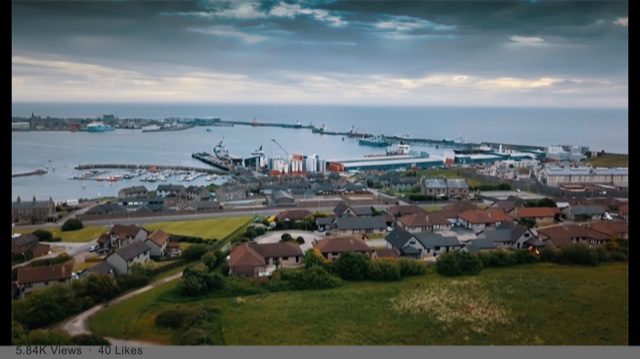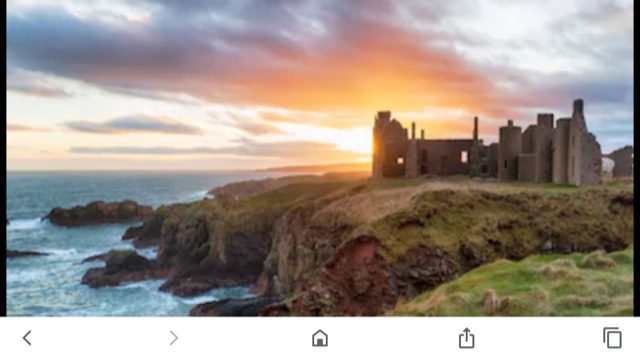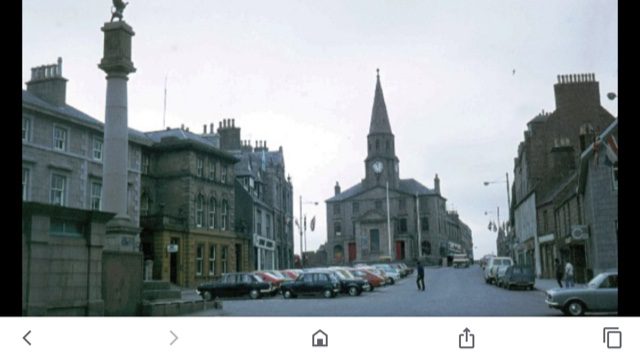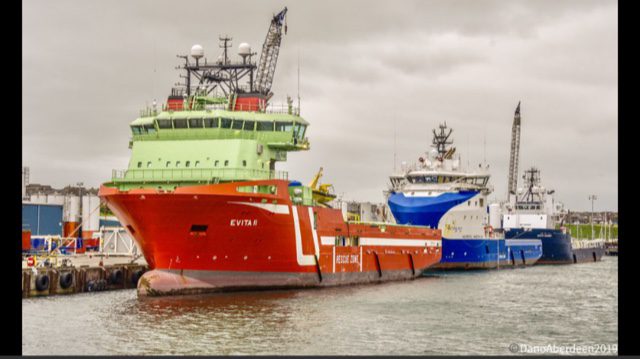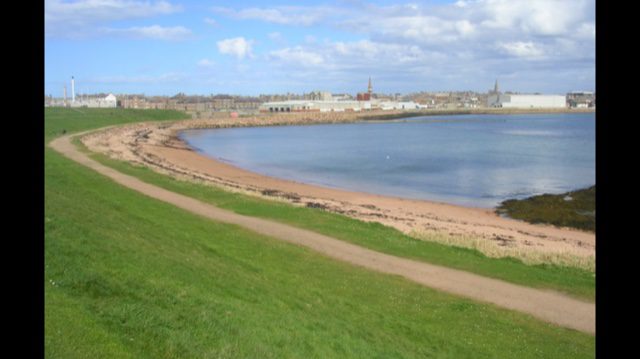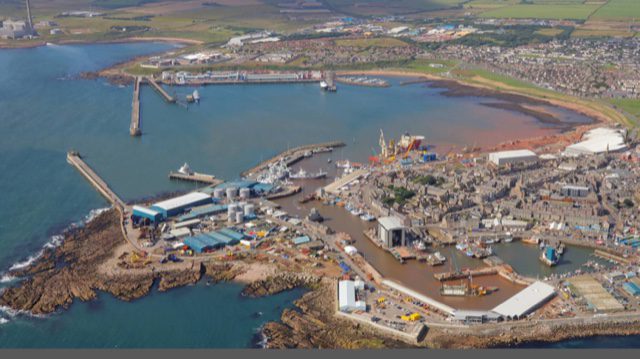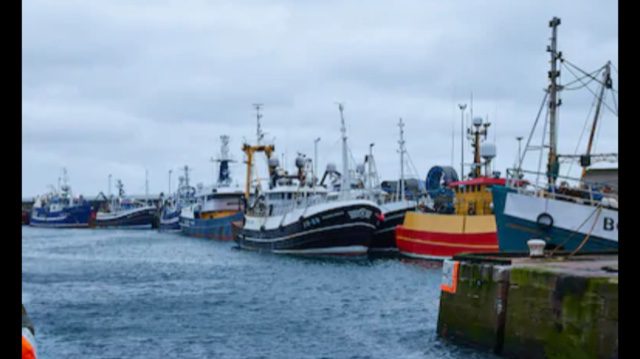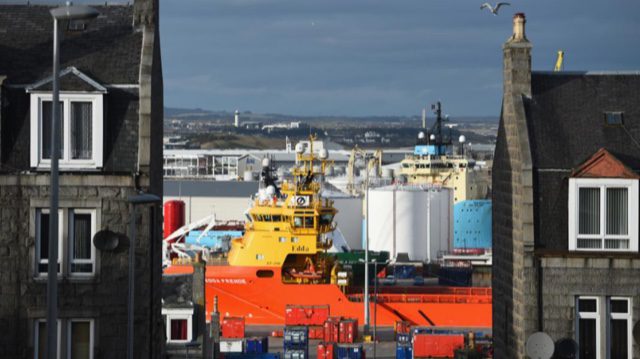Out of the Camp Ch. 11 – Go North Young Man
It didn’t seem possible that almost three years could have passed since our wedding and that our second son was almost one, when one morning in early 1974 I had an installation assignment in Great Cumberland Place, literally a stone’s throw from the famous London landmark of Marble Arch, at the north east corner of Hyde Park. The job was installing a multi-room system on the top floor of a Georgian block of mansion flats. The customer was an Australian who told me that she and her husband would only be living there for probably two or three months. Apparently, they’d just sold their home in Weybridge, Surrey and had bought a Scottish castle near Peterhead which they were renovating and planned to move into as soon as was practicable. I’d heard of Weybridge, of course but didn’t know much about it until years later when I’d take the Airlink transfer helicopter from Heathrow to Gatwick or return when connecting flights. The Airlink route flew over the Weybridge/Virginia Water, Surrey region and one couldn’t help but notice the proliferation of mansions and outdoor swimming pools in the area. They may be more common in the UK now – swimming pools, that is – but back then a swimming pool was an indicator of considerable wealth.
The customer told me that her husband was an industrialist in the oil and gas industries and claimed to have been the oilman who “discovered” Peterhead Bay. I didn’t understand the significance of this of course so she explained that, although Aberdeen would doubtless become the European Oil Capital in the same way that Houston was in the US, it lacked a deep-water harbor which is necessary for the maintenance and servicing of large, deep-drafted vessels and also semi-submersible drilling rigs. This meant that although Aberdeen, as the largest city in the Northern part of Scotland, had a sound infrastructure with the port capabilities to provide berthing and support for supply vessels servicing offshore drilling and construction activities, an additional, alternative port would be needed for service and repair of large vessels and rigs. It turned out that Peterhead with its enclosed harbor was just such a port and stood only 30 miles north of Aberdeen. Peterhead Bay, which forms a large harbor, is sheltered from the North Sea by huge north and south breakwaters with a gap in between to allow ingress and egress of large vessels. . The north and south breakwaters enclose an area of about 300 acres and the average depth is 20 metres (66 feet).
All of this is probably ‘too much information’ and of course she didn’t offload all of this onto the kid fixing her TV. I learned much of it during subsequent years. She picked up on my accent and told me that I should go back to Scotland because there was a huge migration of industry and businesses into the area, bringing once-in-a-lifetime opportunities for those willing to ‘go for it’. She talked about how difficult it was for her husband and his company to find vendors for even basic things such as food supplies, cleaning materials, hardware and even a decent ship’s chandlery for heavy marine equipment. Much of it had to be transported from Aberdeen. Ship-to-shore communications apparently were terrible, and a newly constructed coastguard facility had been unable to establish communications links because of difficulties in having a radio mast erected on the roof. She thought if I went up there, I’d get the contract. I had no illusions about that as the height of those things start at a minimum of about 300 feet, and would normally need a giant crane to hoist the thing onto the roof where several guy wires would be needed to support it. I simply put up TV aerials on the roofs of peoples homes. That was a different world, but she really got me thinking. I didn’t want to give up on music, but I couldn’t go on in the way I had been thus far, I had a family to support and I needed to make a change and maybe this indeed was that “once in a lifetime” opportunity.
I went home that night and told Mary all about what had happened that day and what this woman, Mrs. Titcombe had said. Mary was gung-ho for the idea and we started talking about how we could make the move. After all, we had the children to think of. At least they weren’t of school age yet so that wasn’t an issue at this point. She was thinking about where she could get a job. My mind was focused on getting work. There was of course no internet and I needed to somehow locate home electronics retailers in the area. In those days the place to go was the public library and specifically, the library’s commercial section where, among other things you’d find, certainly in the larger libraries, copies of every telephone book in the UK. By the time I’d completed my research, I’d located about a dozen TV & radio retailers in Peterhead and the surrounding area and so I set about writing to each one, telling them of our plans to move north and offering my services. I received a single reply about ten days later. It came from the owner of the largest home electrical and electronic dealership in Peterhead. He turned out to be the son of the founder of the business who had died and passed it on to his only son who told me that if I moved to Peterhead he’d give me all of the business’s aerial installation and service work. Apparently, he couldn’t find anyone locally to do the work and he was having to do it himself in addition to managing the business which had ten full time staff members. He said that there would be enough work to keep me in full time employment.
At the time Peterhead, although the largest fishing port in the UK, was a town with a population of just 15,000, but now there were hundreds of companies and personnel moving into the area from as far afield as Louisiana, Texas, West Africa, Venezuela and other oil territories including North Sea centers such a Stavanger, Norway and Rotterdam, The Netherlands. Peterhead was originally founded in 1593. It developed as a port and briefly as a fashionable 18th-century
spa, then later in the 19th century, it became the UK’s chief whaling centre. Now, however, and partially as a result of loss of access to the rich fishing grounds around Iceland due to settlement of a dispute generally referred to as the “Cod Wars”, many British fishing communities were devastated with thousands of jobs lost. Peterhead was badly affected by this with the result that many had left the town and many businesses had been forced to close. Consequently, much of the old town centre had been abandoned and had fallen into disrepair. New office space, factory space and warehousing were now desperately needed in addition at the port, to larger berthing facilities to accommodate multiple vessels simultaneously. To meet some of the office and warehousing needs, and as an interim measure until new construction was completed, many temporary buildings were being erected, mobile homes were being used for office space and yards were utilized as storage facilities. At the port, vast improvements were underway including lengthening the jetty to increase the port’s overall capacity to cater for the needs of offshore industry vessels.
On the domestic front there was no housing available for purchase and families, particularly in the fishing community, were going to live with relatives and renting their primary homes at premium levels to incoming oil industry executives and their families. Naturally, I didn’t fully realize the extent of activity in the area at the time and couldn’t have imagined what I found when I got there. Yes, after a few days of mulling it over, discussing the details and formulating a plan, Mary and I decided to make the move and to ‘go for it’! When we’d taken care of existing commitments, given the required notice on our flat in Northfields, West Ealing, and packed everything up, I’d take her and the boys to her parents in Manchester where she’d stay, and I’d continue on and drive north to Peterhead. After I’d established the business, started work and had been able to find somewhere for us to live, I’d return to Manchester to collect them and bring them to Peterhead.
As I drove North the following day in my “Aeranamics” company vehicle (sic) my brain was buzzing. What if things didn’t work out? What if there wasn’t enough work to support us? I was placing the fortunes of my young family in the hands of strangers I’d never met. And what about music? Music had been my life since I quit my apprenticeship and left the coal mines to go on the road with The Sect (a ‘pop’ group – that’s what we called them back then). I’d actually been agonizing over this since the whole ‘Peterhead’ thing had come up. If I was going to make this work, I needed to cut myself off from music, stop reading the music press, and absolutely stop checking the “Musicians Wanted” ads. I think, looking back, that that was the scariest thing of all. Being a singer had been my dream for as long as I could remember and in the blink of an eye, I was going to just walk away. Facing the reality of a life without music was something I couldn’t begin to comprehend. Peterhead, we’d decided, was the future and I was going to make this work, though how I was going to transition from a guy fixing TV aerials (antennas) into an entrepreneur in the offshore oil industry I wasn’t quite sure. As Tab Hunter once said, “You have to go to where the work is”, so in this case I was going to where the oil was, so that I could get into oil, one day at a time!
Images.
(1) Peterhead Bay with the ASCo Service Base in the foreground. (2) Slains Castle, Cruden Bay, Peterhead which is said to have links with the novels of Bram Stoker, including ‘Dracula’. (3) Broad Street, Peterhead. (4) Offshore Support Vessels berthed at the ASCo Base, Peterhead. (5) Peterhead Bay looking North towards the town centre. (6) The Bay looking south with the Northern Breakwater, Fuel Depot and Fish Market in the foreground. (7) Fishing vessels in the harbour. (8) Homes and the offshore industry in Peterhead exist cheek by jowl!
